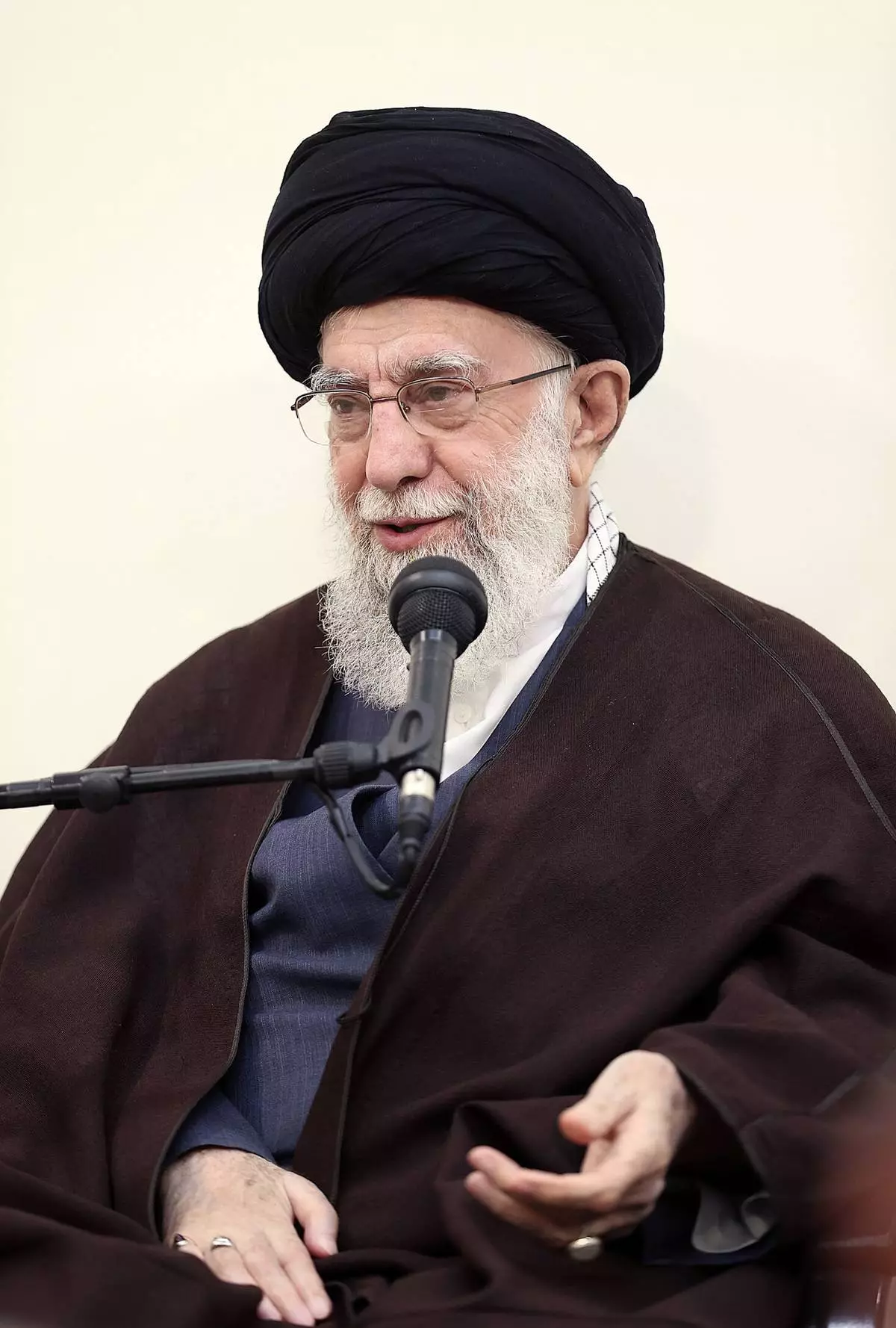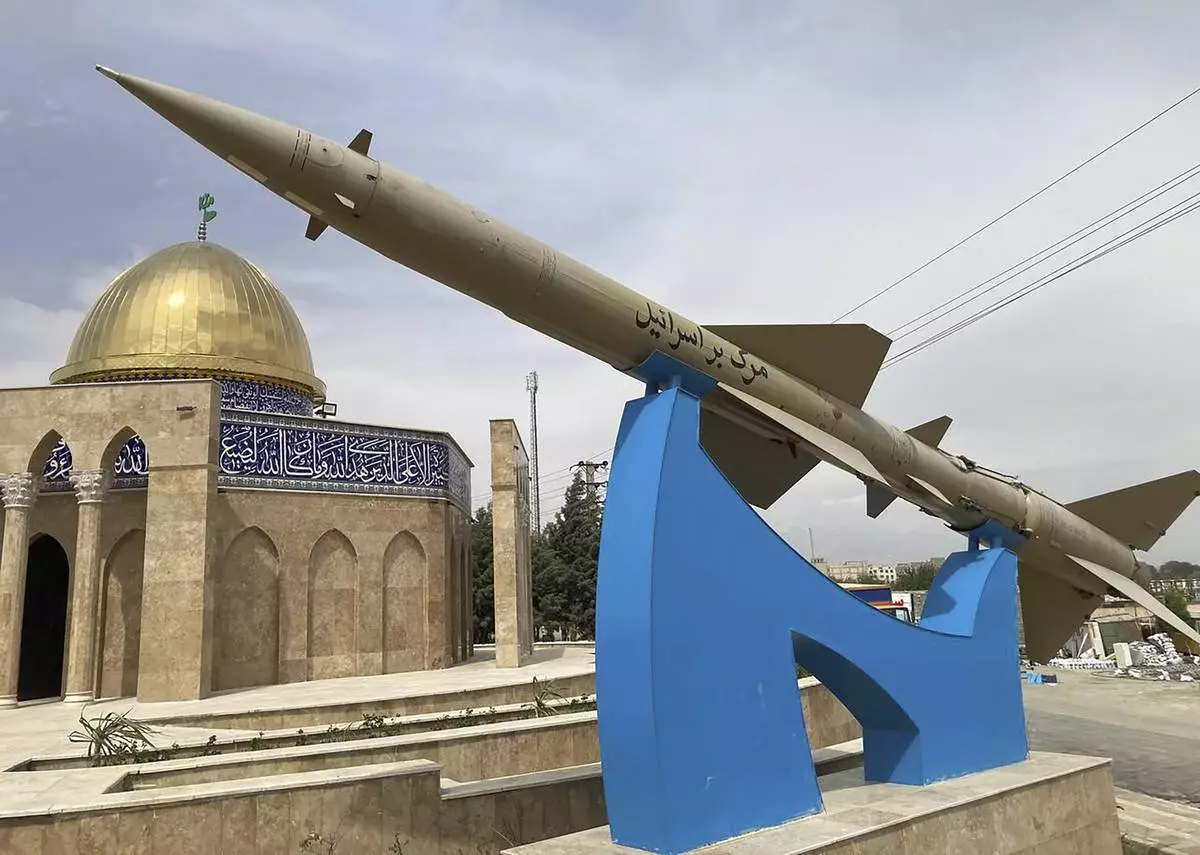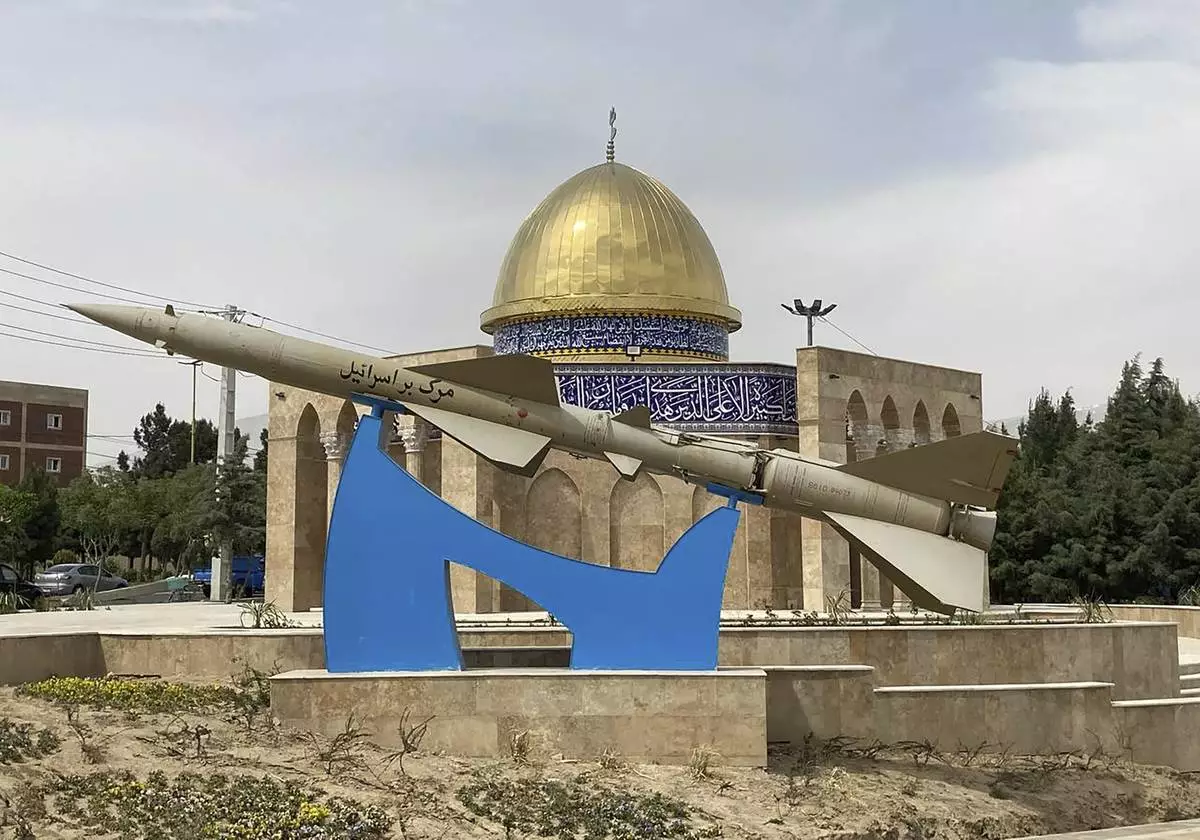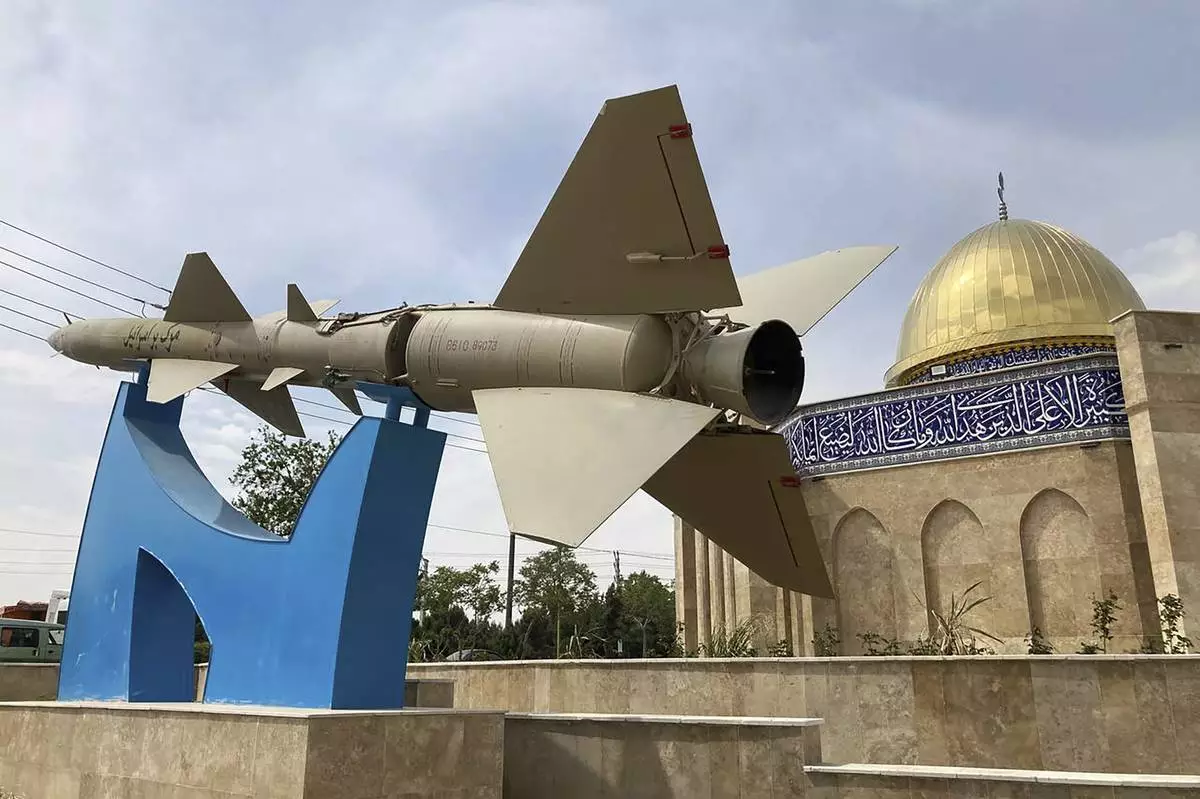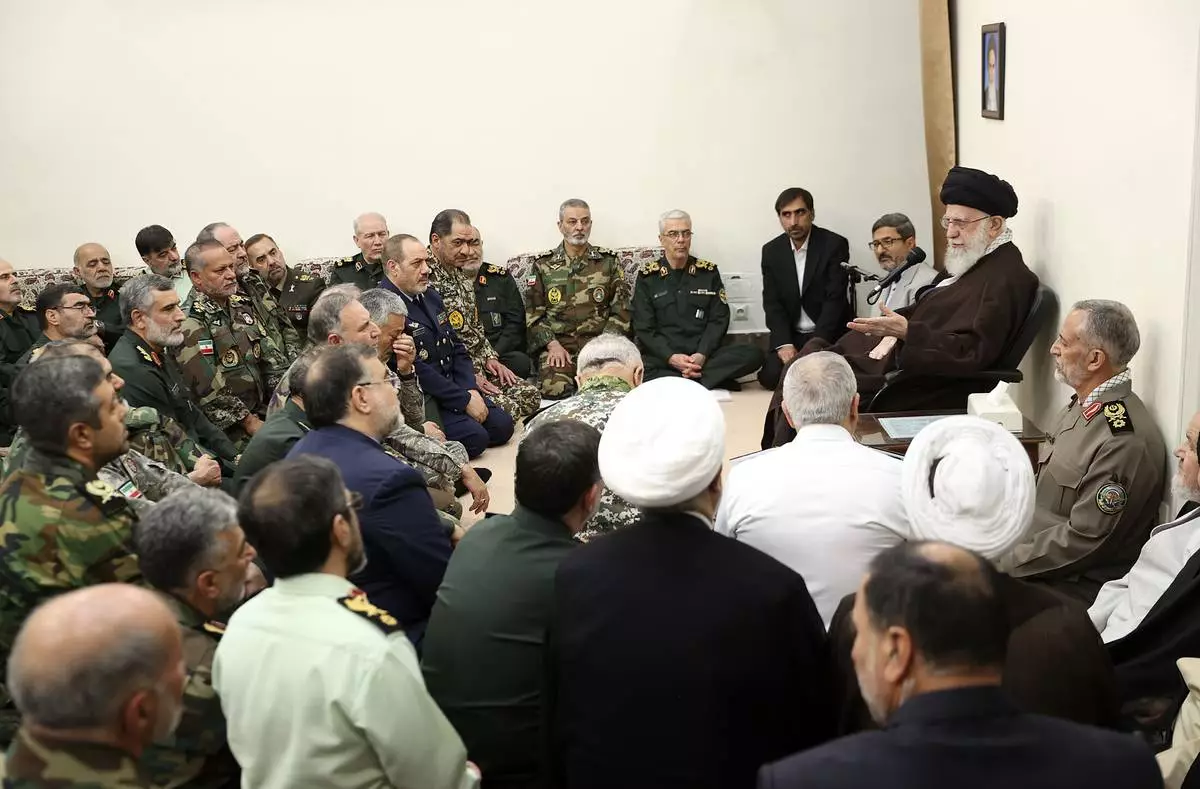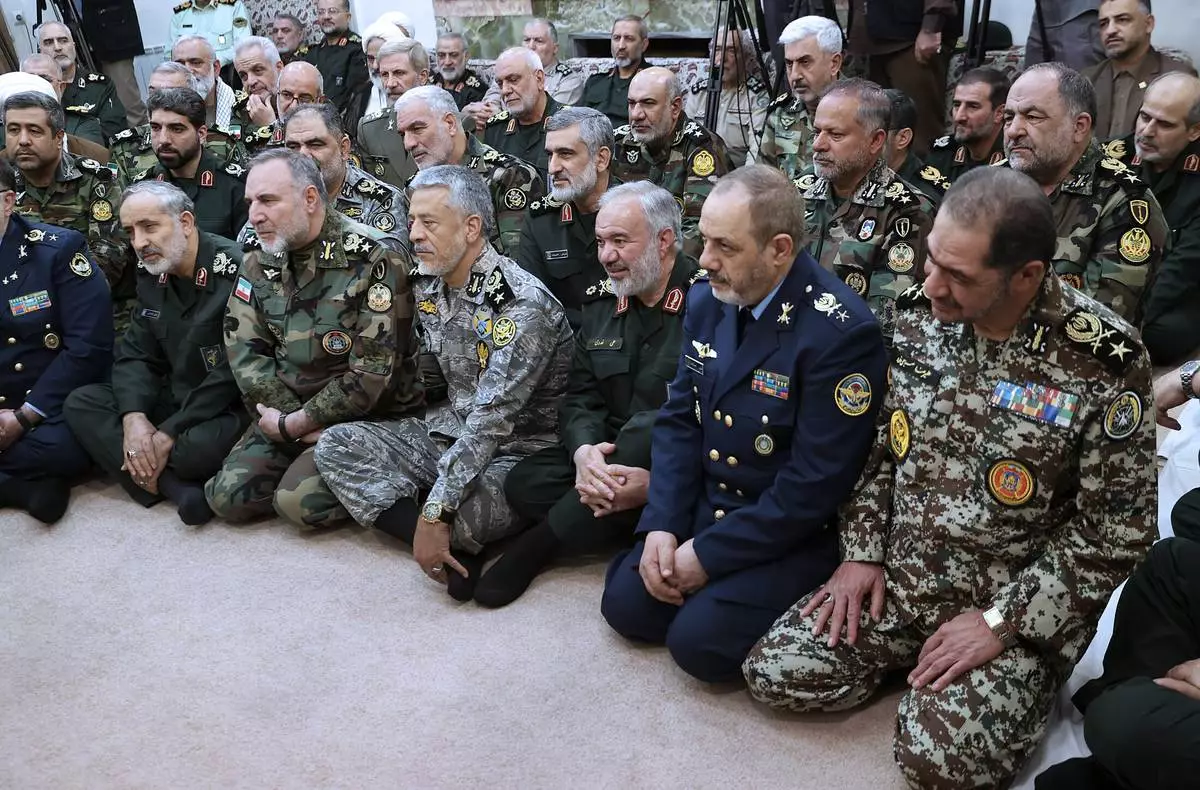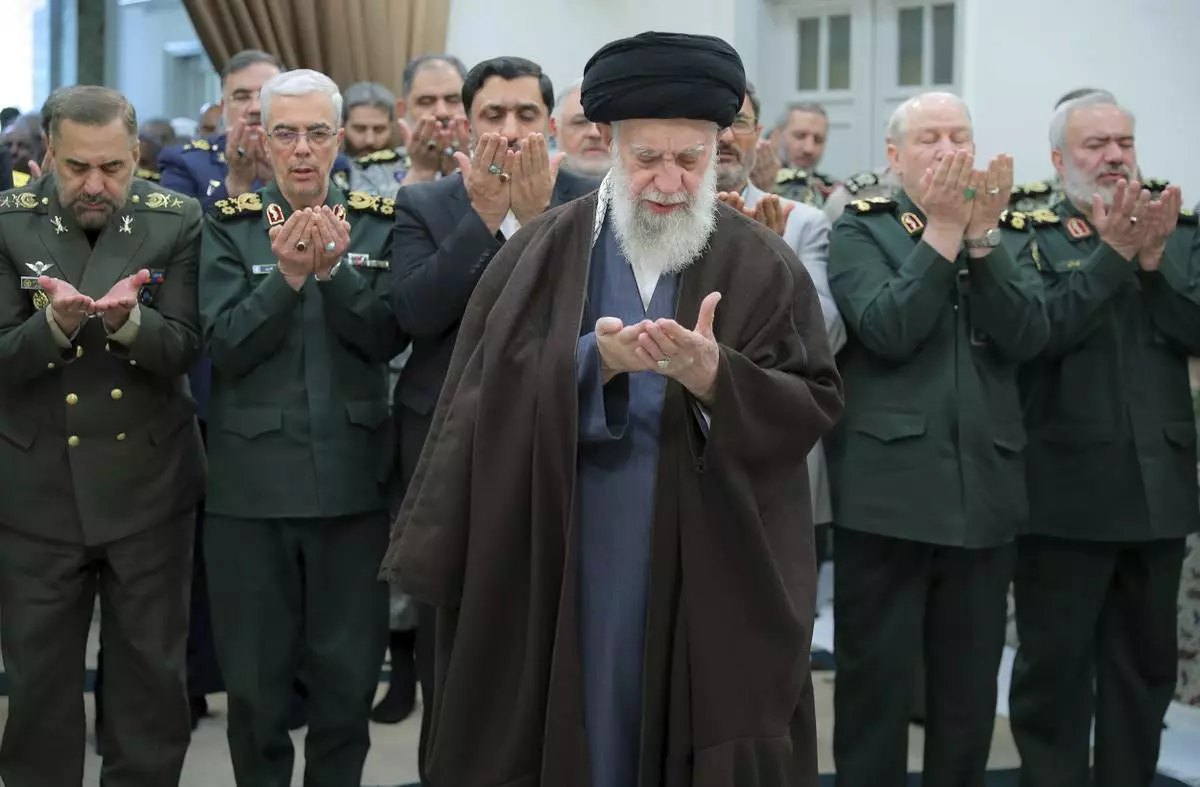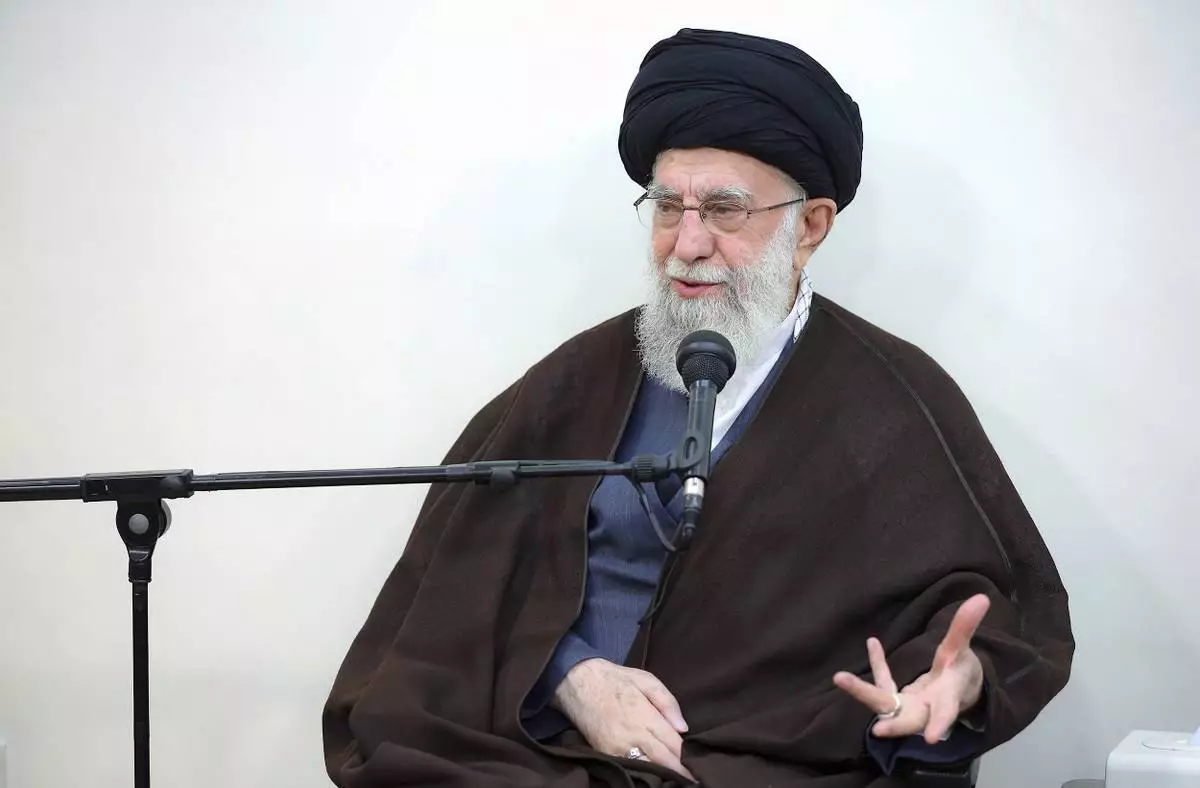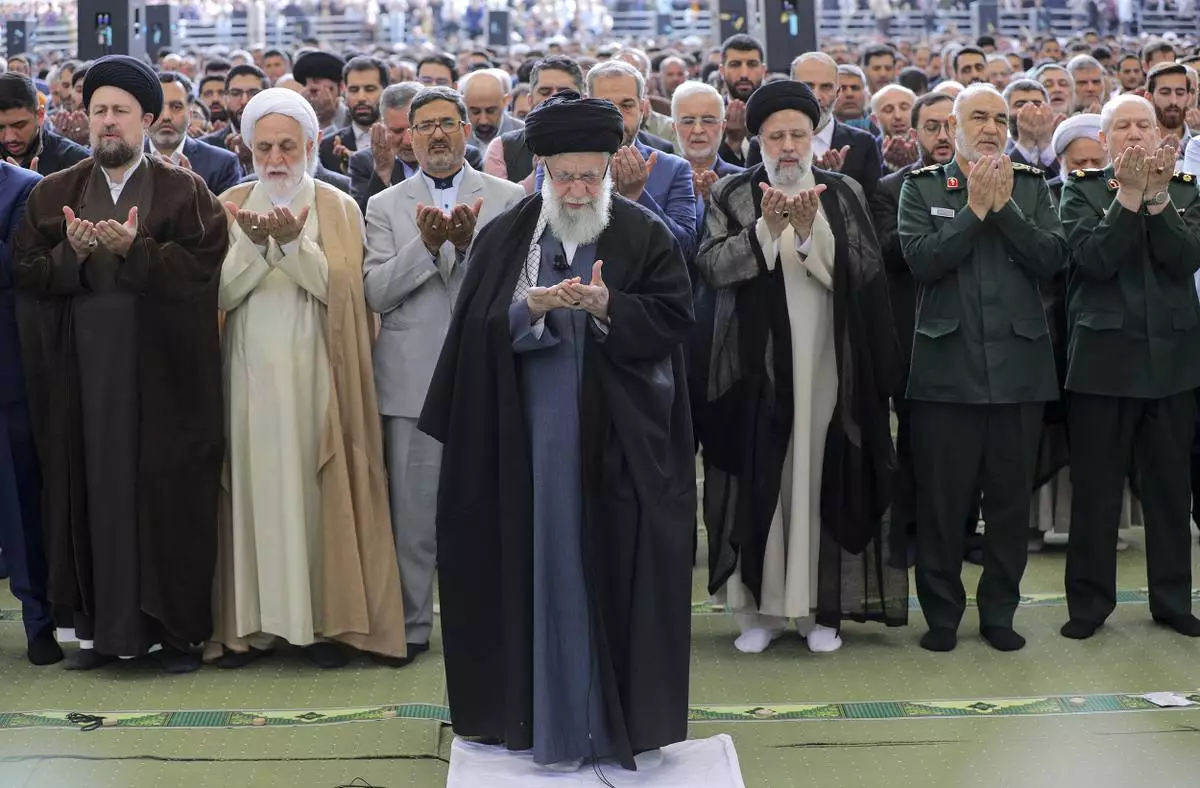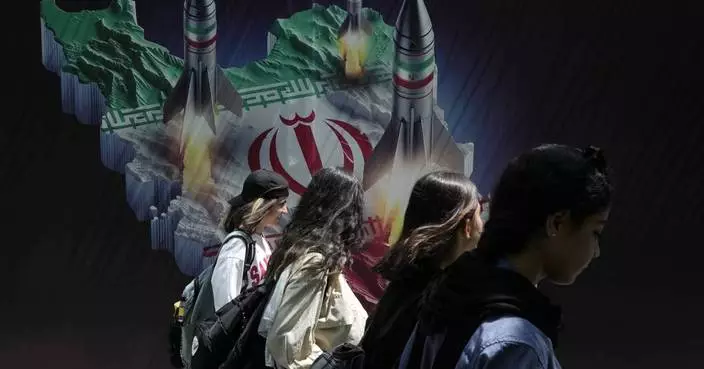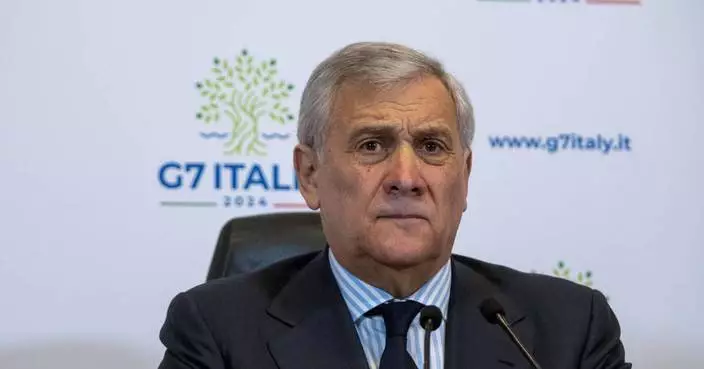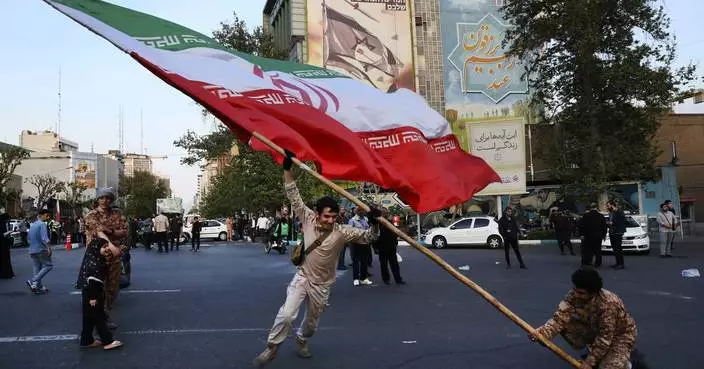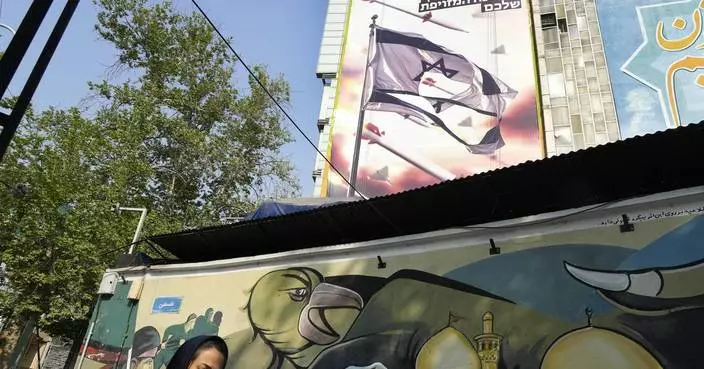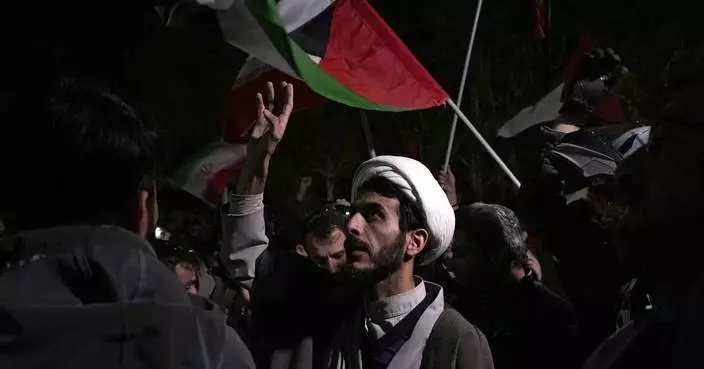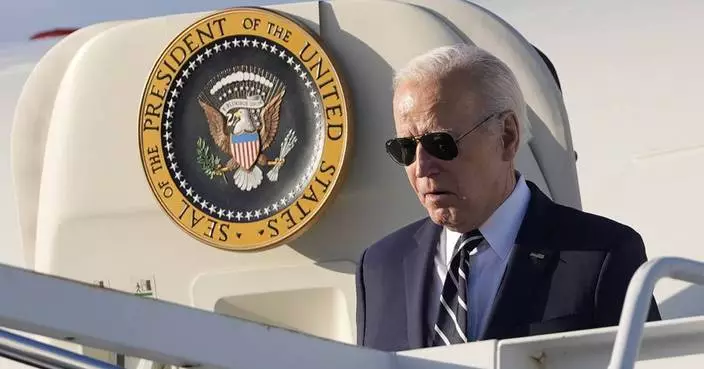As North Korea considers negotiating over its nukes, it may find lessons in the Middle East, where leaders imperiled, paranoid or pugnacious have long used the doomsday weapon threat to secure a wobbly perch.
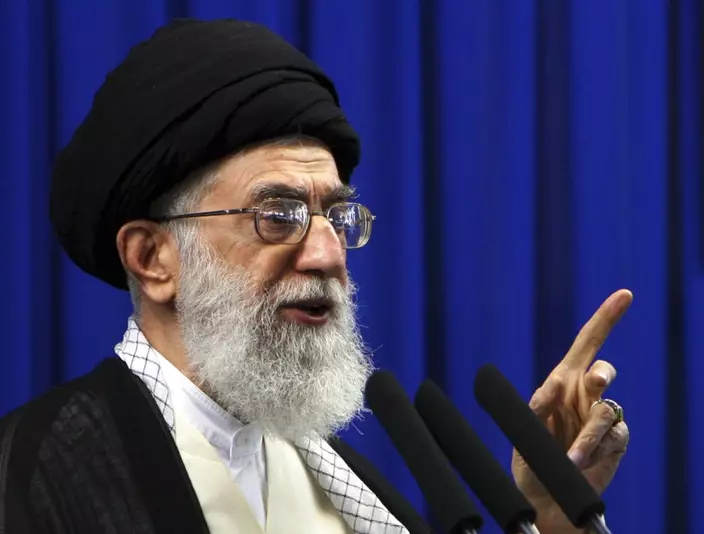
FILE - In a Sept. 19, 2008, file photo Iran's supreme leader Ayatollah Ali Khamenei, speaks during Friday prayer ceremony in Tehran, Iran. Ayatollah Ali Khamenei has issued a fatwa forbidding the production and use of any weapon of mass destruction, and Iran agreed in 2015 to a nuclear deal with world powers to limit its uranium enrichment in exchange for sanctions being lifted. (AP Photo/Hasan Sarbakhshian, File)
It is a delicate dance — and getting the balance wrong can end badly. Holding nuclear weapons, or even chemical weapons, gives a strongman powerful leverage with the region and the world; giving them up can end a pariah status and bring economic benefits.
Saddam Hussein, whose regime used chemical weapons during the Iran-Iraq war in the 1980s, gave veiled hints of possessing even more powerful weapons of mass destruction and appears to have bluffed his way into sparking the 2003 U.S. invasion that proved catastrophic for him. Chastened, Libya's Moammar Gadhafi then gave up a real program. That brought him an opening with the West but he lost a card that might have prevented the NATO air campaign that helped bring him down a few years later, in 2011.
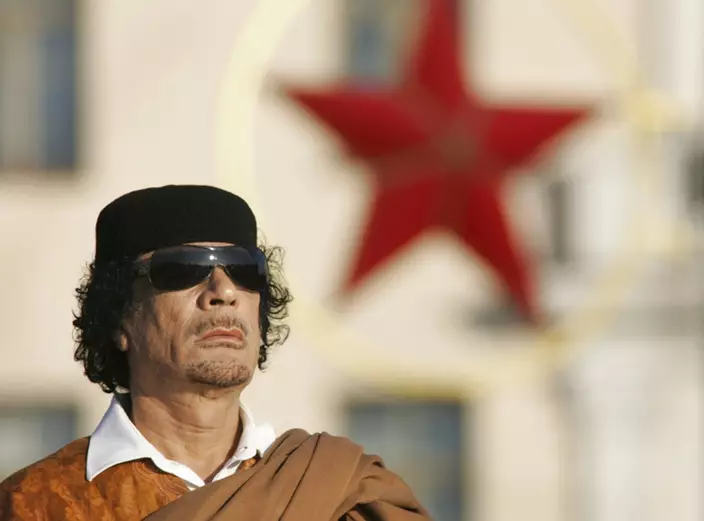
FILE - In this Nov. 3, 2008 file photo, Libyan leader Moammar Gadhafi attends a wreath laying ceremony in the Belarus capital Minsk. Gadhafi welcomed international inspectors to verify the process of dismantling Libya’s chemical and nuclear weapons programs after Libya’s longtime dictator Moammar Gadhafi unilaterally renounced weapons of mass destruction. (AP Photo/Sergei Grits, File)
Syria claims it gave up its chemical weapons. About a decade ago, a nuclear project was reduced to dust by Israeli jets. No believer in mutual assured destruction, Israel is itself widely believed to have a significant undeclared arsenal that has kept its enemies cautious.
Iran was stopped from approaching weapons capability, which it denied seeking, through a deal with world powers. The 2015 agreement limiting the atomic program brought — as North Korean leader Kim Jung Un undoubtedly has noted — significant economic benefits in its wake.
The world's reaction suggests there is no such thing as the absolute right to such weapons, nor a blanket prohibition. And as the world grows more multipolar and chaotic, circumstances trump principle.
Here's a look at how some of these nuclear narratives played out:
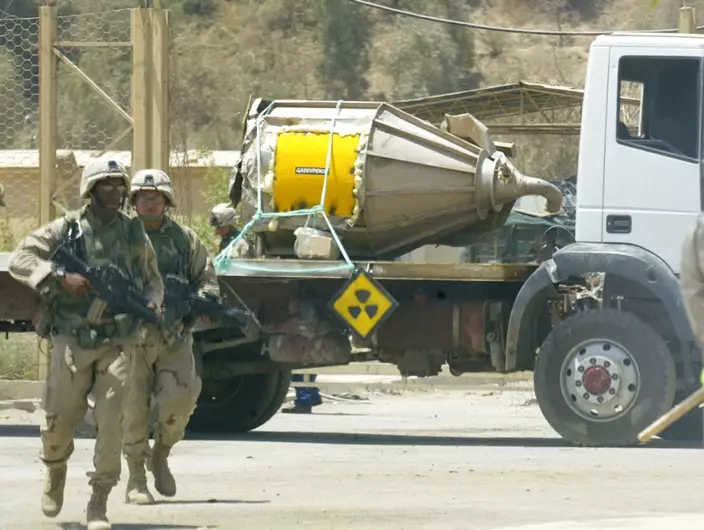
FILE - In this June 24, 2003 file photo, US soldiers prepare to escort a canister containing "yellow cake" or Uranium Oxide which was looted during the war from the nuclear facility in Tuwaitha, Iraq. North Korea may find lessons in the Middle East as Pyongyang considers negotiating over its nukes. (AP Photo/Bullit Marquez, File)
SADDAM'S GAMBLE, FROM BEGIN TO BUSH
Iraq pursued nuclear capabilities under Saddam for decades; the centerpiece of his nuclear efforts was the Tuwaitha nuclear complex, about 19 kilometers (12 miles) south of Baghdad.
Iran bombed the site in 1980. Israeli warplanes bombed a reactor project at Tuwaitha in 1981 and the U.S. bombed it in 1990. After the 1981 attack, Israel announced a pre-emptive strike policy that was subsequently named after then-Prime Minister Menachem Begin.
Later, under Saddam, U.N. inspectors documented and safeguarded 550 metric tons of "yellowcake" — the seed material for higher-grade nuclear enrichment — stored at Tuwaitha since before the 1991 Gulf War.
In the lead up to the 2003 U.S. invasion, President George W. Bush claimed Saddam attempted to purchase additional uranium yellowcake from Niger as part of a program aimed at developing weapons of mass destruction.
Months later, the White House admitted the claim was false and based on forged intelligence documents.
Following the invasion of Iraq, no evidence surfaced of programs pursing weapons of mass destruction and in 2005 the CIA's top weapons inspector in Iraq said an investigation into the alleged programs found nothing.
No additional yellowcake was uncovered at the Tuwaitha site and the material once guarded by the United Nations — dating back to before the Gulf War — was put under control of American forces and eventually removed from the country in 2008.
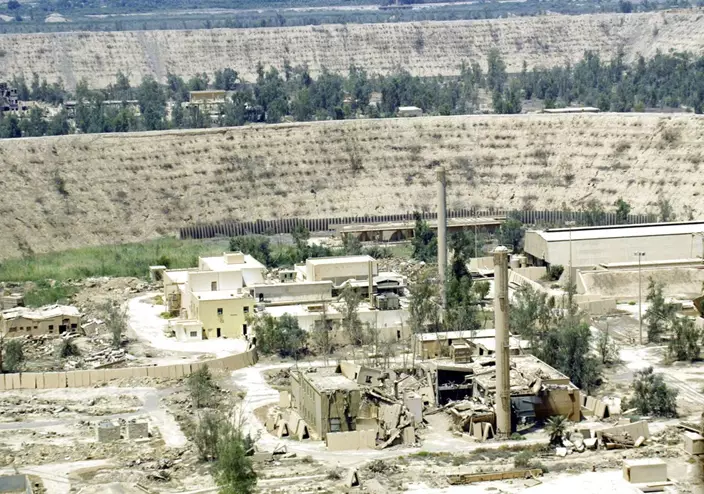
FILE - This June 5, 2003 file photo, shows the Tuwaitha Nuclear facility in Tuwaitha, Iraq. In 2018, as North Korea mulls negotiating over its nukes, it may draw lessons from Mideast strongmen and their nuclear threats. Iraq pursued nuclear capabilities under Saddam for decades; the centerpiece of his nuclear efforts was the Tuwaitha nuclear complex, about 19 kilometers (12 miles) south of Baghdad. (AP Photo/Bullit Marquez, File)
GHADAFI DRAWS CONCLUSIONS
Libya's longtime dictator unilaterally renounced weapons of mass destruction and ended the country's programs in 2003, shocking the world with sudden compliance in the wake of the U.S. invasion of Iraq, after years of operating as an international pariah. Gadhafi welcomed international inspectors to verify the process, and they helped dismantle Libya's chemical and nuclear weapons programs, as well as its longest-range ballistic missiles.
Libya fell into chaos following the 2011 uprising by rebels that overthrew and killed Gadhafi, with much of the country now in the hands of militias nominally loyal to two rival governments in the country's east and west. Despite this, Libya's few remaining stockpiles of chemical and biological agents are considered secure, and arms control experts say authorities continue to destroy them.
A NIGHTTIME STRIKE ON SYRIA
In September 2007, Israeli fighter jets destroyed a complex in the Syrian desert that the United States says was a covert, nearly finished nuclear reactor. A year after the strike, the U.N. nuclear watchdog determined that the destroyed building's size and structure fit the specifications of a nuclear reactor. Syria never stated the purpose of the site known as Al-Kibar in the eastern province of Deir el-Zour.
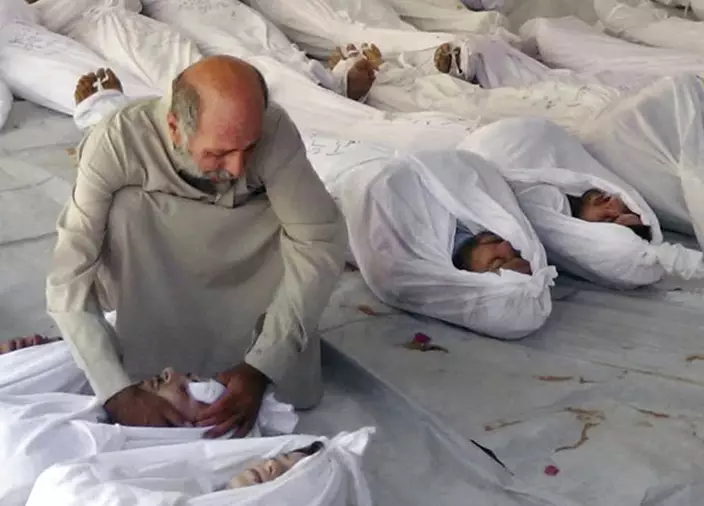
FILE - This Aug. 21, 2013 citizen journalism file image provided by the anti-government Media Office Of Douma City, shows a Syrian man mourning over a body after an alleged poisonous gas attack fired by government forces, according to activists, in Douma, Syria. (Media Office Of Douma City via AP, File)
More recently, Syria's issue was chemical weapons.
A chemical weapons attack in the Damascus suburbs in August 2013 that killed hundreds of people sparked worldwide outrage. The U.S. blamed Syrian President Bashar Assad's forces and threatened punitive strikes, but backed off at the last minute following a surprise agreement with Moscow to remove all of Syria's previously undisclosed chemical weapons. Ahead of disarmament, Assad's government disclosed it had some 1,300 tons of chemical weapons, including sarin, VX nerve agent and mustard gas.
This did not include chlorine, which has civilian uses. Soon after the declaration that everything was destroyed, reports began emerging of chlorine attacks and the use of other suspected chemical weapons agents including sarin, raising questions about whether Syria had disclosed all aspects of its chemical weapons program.
Last April, the U.S. launched several dozen Tomahawk cruise missiles at a Syrian air base in response to a chemical attack in the country's northwestern Idlib province that killed about 80 people. Since then, the Trump administration has accused Assad of producing and using "new kinds of weapons" to deliver deadly chemicals. There have been at least seven reported chlorine gas attacks this year. The government denies using the agent in its attacks.
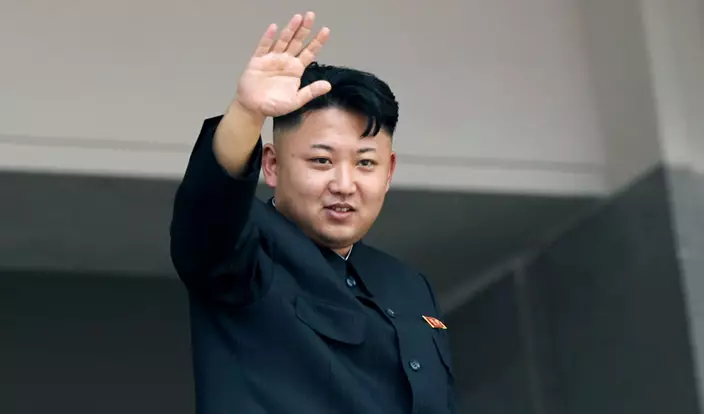
FILE - In this July 27, 2013 file photo, North Korea's leader Kim Jong Un waves to spectators and participants of a mass military parade celebrating the 60th anniversary of the Korean War armistice in Pyongyang, North Korea. North Korea may find lessons in the Middle East as Pyongyang considers negotiating over its nukes. (AP Photo/Wong Maye-E, File)
THE PERSIAN BAZAAR
Given the hostility between Iran and the U.S., it's easy to forget that America actually began Iran's nuclear program through its "Atoms for Peace" program during the time of the U.S.-backed shah, Mohammad Reza Pahlavi. But after the 1979 Islamic Revolution, Iran did little to advance its nuclear program as it faced a bloody eight-year war with Iraq in the 1980s. After that conflict, Iran expanded its program, including buying equipment from A.Q. Khan, the father of Pakistan's nuclear program.
Iran long has maintained its nuclear program was for peaceful purposes. Supreme Leader Ayatollah Ali Khamenei has issued a fatwa forbidding the production and use of any weapons of mass destruction. However, the West feared Iran's program could be used to clandestinely build atomic bombs. Iran found itself subject to major international sanctions over its program that crippled its economy.
Ultimately, Iran agreed in 2015 to a nuclear deal with world powers under which Tehran limited its uranium enrichment in exchange for the lifting of sanctions. That deal now appears in jeopardy with President Donald Trump's refusal to recertify it.
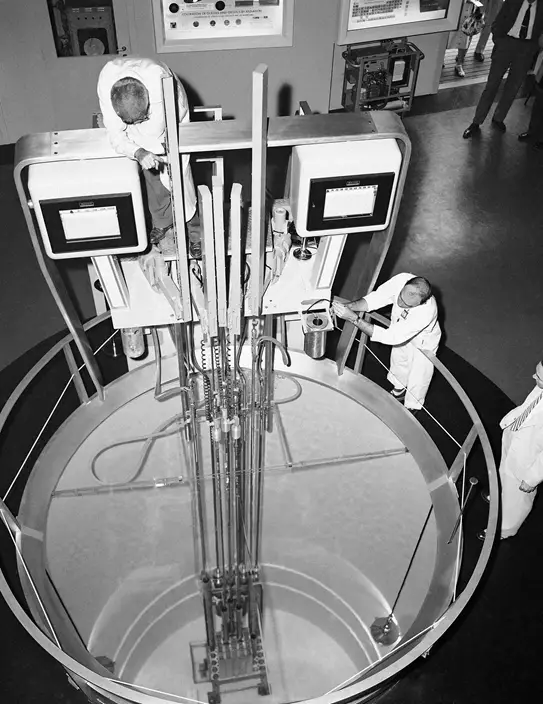
FILE - In this Aug. 8, 1955 file photo, technicians make last minute adjustments on the American atomic research reactor assembled at the Palace of Nations for the international conference on the peaceful uses of atomic energy, in Geneva, Switzerland. (AP Photo, File)
ISRAEL'S DENIABLE DETERRENT
While Israeli Prime Minister Benjamin Netanyahu has been an outspoken critic of the international nuclear deal with Iran, he says little about Israel's own suspect nuclear program.
Israel is widely believed to possess a vast arsenal of nuclear bombs — a consensus reached by international experts after former nuclear technician Mordechai Vanunu leaked pictures and details of Israel's nuclear program to a British newspaper in 1986.
Israel neither confirms nor denies the existence of a weapons program. It also is among a handful of countries not to sign the Nuclear Non-proliferation Treaty, leaving its nuclear facilities off limits to international inspections.
Over the decades, its policy of "nuclear ambiguity" has served as an effective deterrent and insurance policy against Israel's many foes in the Arab and Muslim world.



